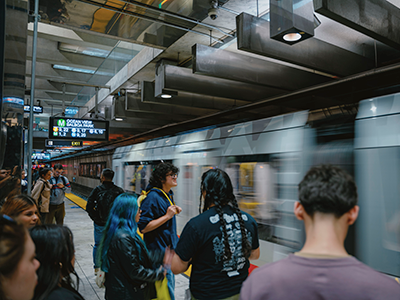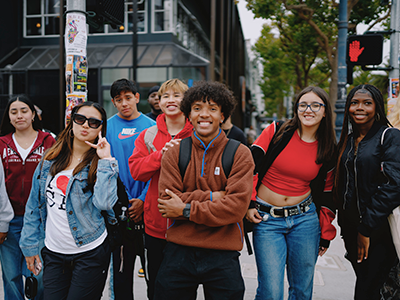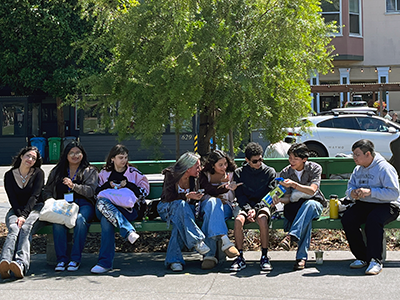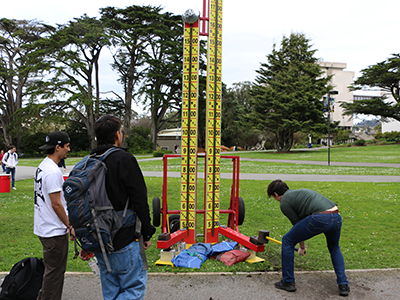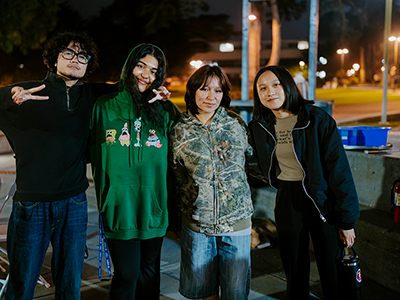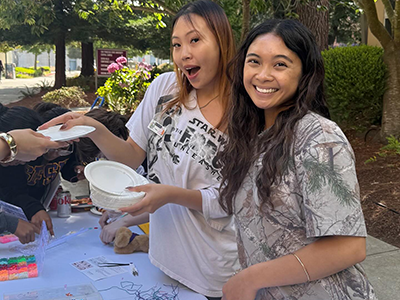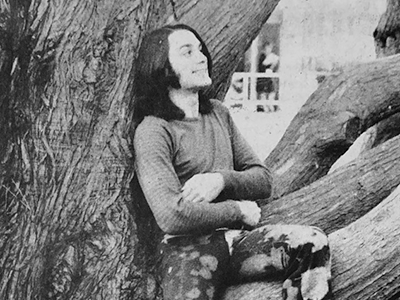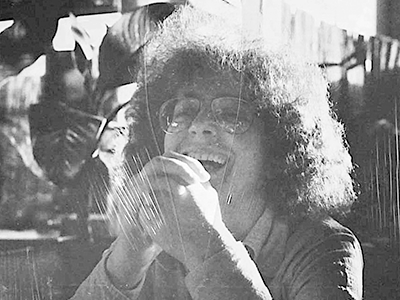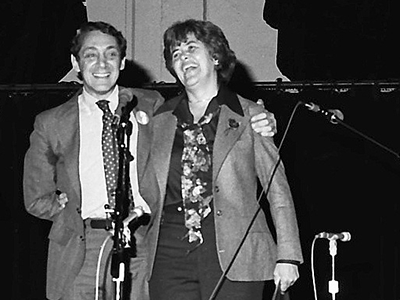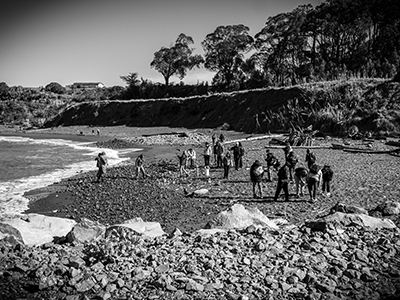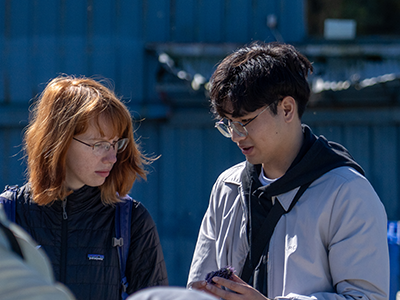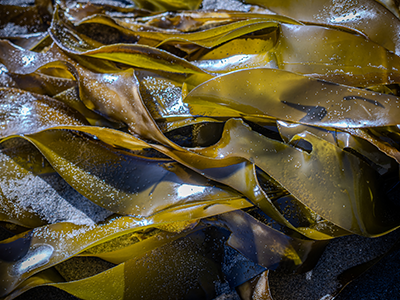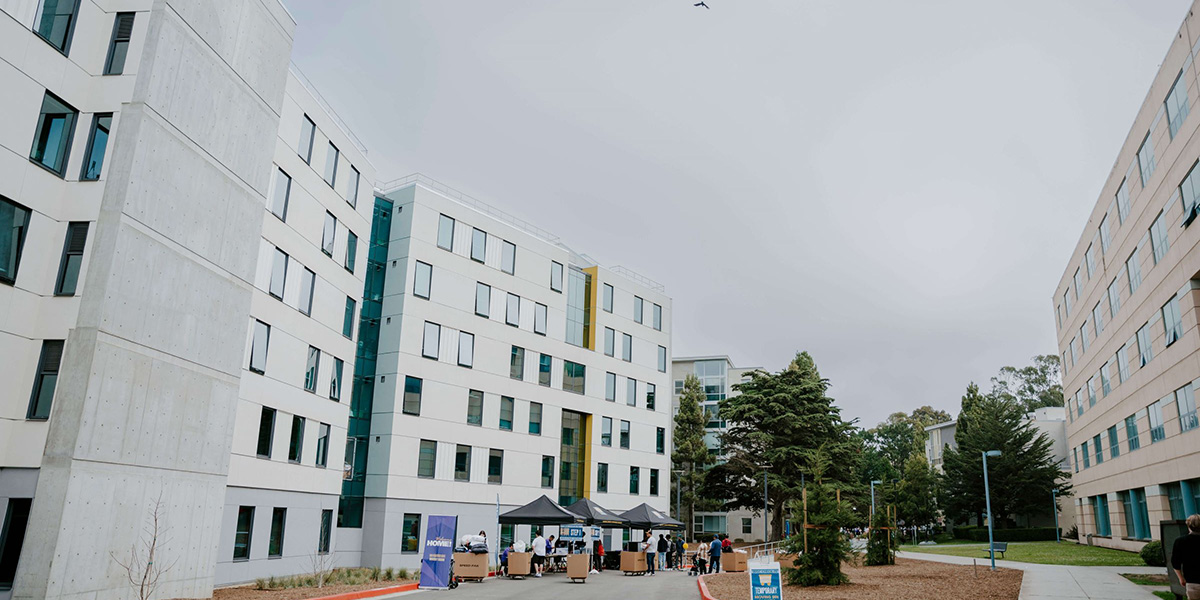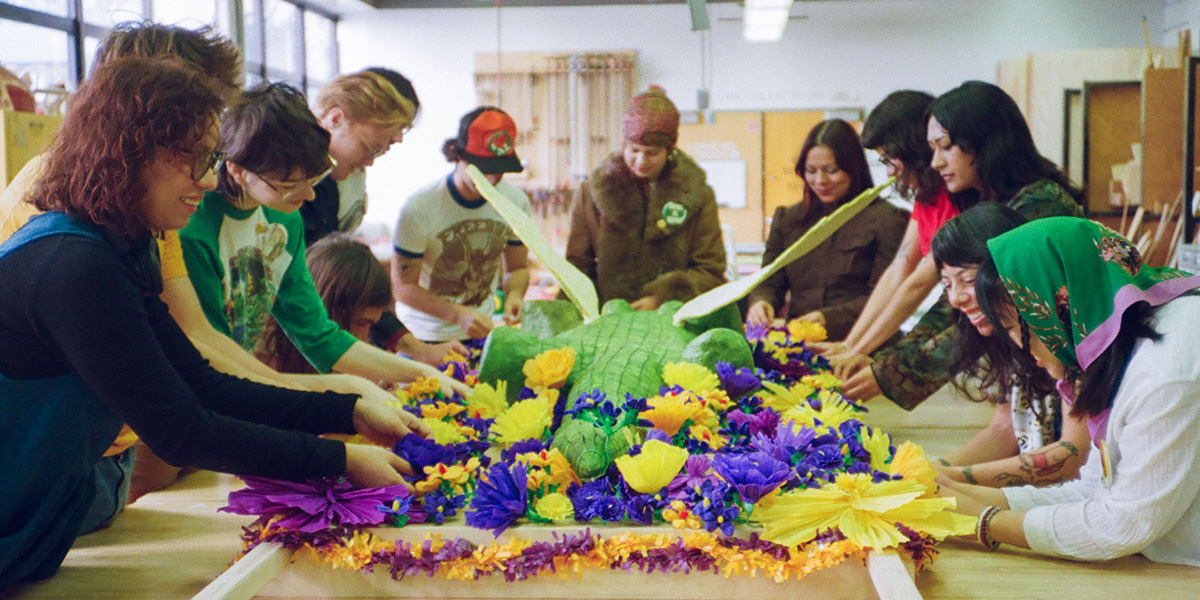Your SFSU crash course on San Francisco living
Four-day class gives new students an opportunity to see iconic sites while exploring the city by public transit
When you decide to go to a big city university like San Francisco State, you’re going to need to know how to navigate public transit. SFSU has a class for that. The capstone of the four-day, one-unit “Living in San Francisco” class takes over 200 new Gator students on a Municipal Railway (Muni) adventure throughout this beautiful, one-of-a-kind city.
Riding public transit is more than an exciting and eco-friendly way for you to explore the San Francisco Bay Area — It’s also the most affordable. All SFSU students receive unlimited rides throughout 22 transit agencies spanning all nine Bay Area counties. It’s a reason why students are choosing SFSU.
“The transit here is accessible. Back at home, there aren’t many trains and it’s not as efficient. Even if I had a car, I wouldn’t want to drive it here,” said April Ulloa, a freshman from Santa Monica, while waiting with her classmates for an inbound M Oceanview train at the SFSU/Parkmerced station.
“If it’s free, you especially have to take advantage,” added her new friend Kenya Velasquez, a freshman from San Leandro.

For their field trip through the city, student groups were responsible for wayfinding. They had to determine their own routes by public transportation and by foot, leaving from campus in the morning and returning in the late afternoon. No rideshares, robotaxis, pedicabs or hitchhiking.
One group included several San Francisco high school graduates. They were raised on Muni. They helped lead the way, taking the group from the Castro District on a walk to Dolores Park and the Mission District. Rides on the crowded 22 Fillmore and 38 Geary buses on the way to Chinatown — a locals-only route that Google Maps surely wouldn’t recommend — gave students a glimpse into the everyday routines of San Franciscans as they passed through the Fillmore, Japantown, Tenderloin and Financial districts. Those new to the city and to riding public transit received advice on personal safety from their peers.
Throughout their travels they stopped not just to catch their breaths climbing the city’s famously steep hills, but also to take in views of the skyline, check out the public art, stop for lunch, drink smoothies and browse the shops.
“My favorite part about exploring San Francisco is in every little spot you find, there’s always going to be something interesting there, whether it’s stores, restaurants or art displays,” said Renee Richardson, a first-year student. “There’s always something cool around.”
The “Living in San Francisco” syllabus makes it clear: making new friends is one of the main objectives, along with learning the city and its public transit. Taught by First-Year Experience Faculty Director Susanna Jones, the class also helps you navigate the myriad student services on campus. SFSU’s College of Professional & Global Education offered the course for free to incoming students.
Now that our students have completed the “Living in San Francisco” class, they are prepared to bring their brightness wherever their studies — and unlimited transit rides — take them.
Learn more about SFSU New Student and Family Programs.
